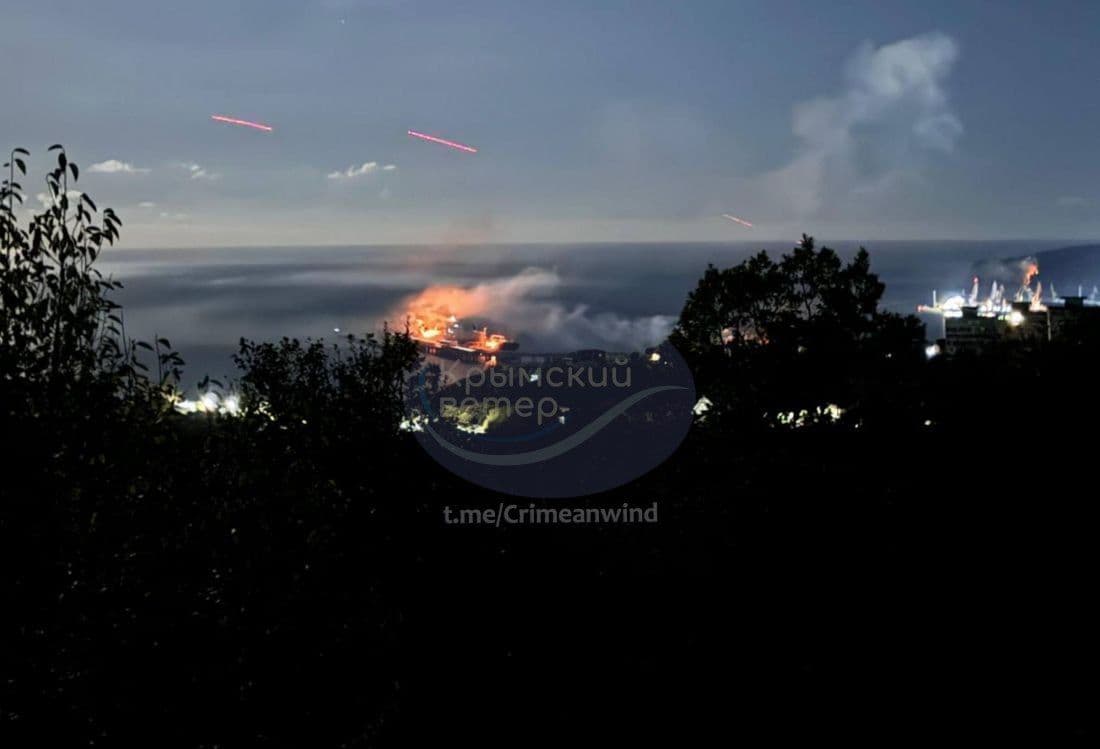Russia's Tuapse oil refinery reportedly halts operations after Ukrainian drone strike

Editor's note: This article has been updated with additional comments from Ukrainian military officials.
The Russian oil refinery in Tuapse halted processing on Nov. 2, a day after a Ukrainian drone attack, Reuters reported.
In a Nov. 5 report citing industry sources, Reuters said the refinery suspended operations due to damage to port infrastructure.
A source at the Security Service of Ukraine (SBU) told the Kyiv Independent that Ukrainian drones struck an oil terminal and an oil tanker in Russia's Krasnodar Krai late on Nov. 1.
Five drone strikes were recorded, according to the SBU. Following the strikes, a tanker caught fire, and at least four piers used to load and unload tankers were rendered inoperable, and port buildings were also damaged.
Reuters, citing LSEG data, reported that three tankers were docked at the port during the attack for loadings of naphtha, diesel, and fuel oil.
The General Staff of the Ukrainian Armed Forces confirmed on Nov. 2 that the oil infrastructure of the seaport located in the Black Sea coast in the port city of Tuapse had been damaged.
The terminal in Tuapse is operated by Russia's state oil company Rosneft. The city serves as a vital hub for Russian oil exports, with terminals and infrastructure critical to the country's energy logistics.
The refinery was expected to increase oil product exports in November, Reuters wrote. The plant, with a capacity of 240,000 barrels per day, produced naphtha, fuel oil, vacuum gas oil, and high-sulfur diesel, primarily for China, Malaysia, Singapore, and Turkey.
Speaking on air during a national telethon, Ukrainian Navy spokesperson Dmytro Pletenchuk said on Nov. 2 that the strike would have "long-term consequences" for Russia.
"This case is important and will have quite long-term consequences, because, in addition to directly damaging the technological chains involved in shipping, there will also be a reaction among seafarers, that is, companies that are directly refueled there," Pletenchuk said.
"This also increases insurance premiums. And in principle, this will discourage many from entering these ports."
The refinery in Tuapse halted processing the day after the attack due to the port infrastructure damage, Reuters reported on Nov. 5, citing its sources.
According to Reuters, Tuapse was expected to increase oil product exports in November. The plant, with a capacity of 240,000 barrels per day, produces naphtha, fuel oil, vacuum gas oil, and high-sulfur diesel, primarily for China, Malaysia, Singapore, and Turkey.
Photos and videos posted on social media purport to show a large fire emanating from the pier of the terminal, situated off the Black Sea.
Russian Telegram channels, citing resident reports, noted at least three fires were seen around the area of the oil terminal, including at an oil tanker.
Officials from Krasnodar Krai's regional operations headquarters later confirmed that a drone attack had caused damage to port infrastructure. Officials added that the deck superstructure, a vessel, buildings, and terminal infrastructure were damaged in the attack.
Preliminary information indicated that there were no casualties, Russian officials claimed.
"The SBU continues to strike at Russia's oil refining infrastructure, which provides the enemy with resources for aggression against Ukraine. As long as the war continues, flames will continue to burn brightly at Russian oil refineries," the SBU source said.
On Nov. 3, the BBC published a satellite image showing an oil spill in the Black Sea stretching approximately 3,6 kilometers from the terminal damaged in the attack.
The blaze comes amid a wider Ukrainian drone attack on various regions of Russia. Explosions and smoke were reported in the city of Oryol following the reported attack on Krasnodar Krai.
The oil terminal in Tuapse was previously attacked by Ukrainian naval drones during an attack on Sept. 24, a source in Ukraine's military intelligence agency (HUR) told the Kyiv Independent.
Ukraine routinely launches deep strikes against military and industrial facilities in Russia, primarily relying on domestically developed drones.
Russia's oil and gas production has continued to come under attack as Kyiv attempts to cripple Moscow's primary source of funding for its war in Ukraine.











